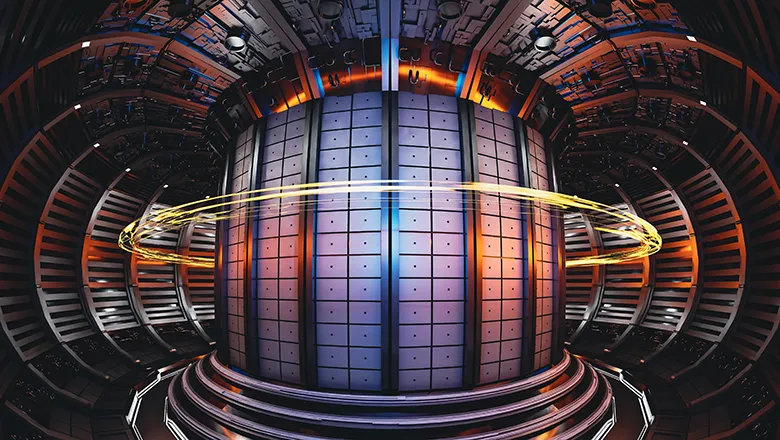I am thrilled and honoured to be named as a Royal Academy of Engineering Research Chair, and to have the opportunity to explore the power of exascale supercomputers for advancing the frontiers of fusion research, together with UKAEA.
Professor David Moxey
31 October 2024
King's Engineer appointed Royal Academy of Engineering Research Chair
Professor David Moxey will help advance clean energy development by leading the creation of computational tools for fusion modelling.

Professor David Moxey from the Department of Engineering has been awarded a prestigious Research Chair of Royal Academy of Engineering to develop cutting-edge computational tools for nuclear fusion modelling.
As the UKAEA/Royal Academy of Engineering Research Chair in Next-generation numerical methods for high-fidelity fusion modelling, Professor Moxey will lead a team over the next five years to transform nuclear energy management and accelerate the shift towards cleaner, more sustainable energy sources.
Fusion and fission are types of nuclear energy. However, fusion which mimics the way the sun produces energy, results in less radioactive waste and fewer safety risks.
The project will help realise the UK Atomic Energy Authority’s (UKAEA) mission to produce a commercially viable fusion reactor by the 2040s, drastically reducing our reliance on fossil fuels and helping to combat climate change.
Royal Academy of Engineering Research Chairs help strengthen the links between industry and academia. They support exceptional academics in UK universities to undertake use-inspired research that meets the needs of industrial sponsors.
Professor Moxey’s team will take advanced mathematical techniques from academic research and turn them into easy-to-use tools for industry. These tools will help fusion scientists to model plasma – an extremely hot and unstable form of matter which powers fusion reactors – and their interactions inside a reactor.
The team will then use exascale supercomputers to simulate highly detailed virtual models, supporting UKAEA’s goal of creating a digital twin – a precise, real-time virtual replica – of what is happening inside a nuclear fusion reactor. The digital twin will help scientists to study and optimise the performance of fusion reactors, transforming approaches to managing these energy systems.
This will be an ambitious project that comes at a very exciting time for fusion research in the UK, and I look forward to accelerating progress towards sustainable fusion energy solutions.
Professor David Moxey
Professor David Moxey said:
“I am thrilled and honoured to be named as a Royal Academy of Engineering Research Chair, and to have the opportunity to explore the power of exascale supercomputers for advancing the frontiers of fusion research, together with UKAEA.”
“This will be an ambitious project that comes at a very exciting time for fusion research in the UK, and I look forward to accelerating progress towards sustainable fusion energy solutions.”
Established in 1976, the Royal Academy of Engineering is dedicated to collaborating with more than 1,000 policymakers in both the UK and around the world, with the aim of enhancing the quality of people’s lives. It provides independent guidance to government, drawing on the expertise of a network of over 450,000 engineers.

